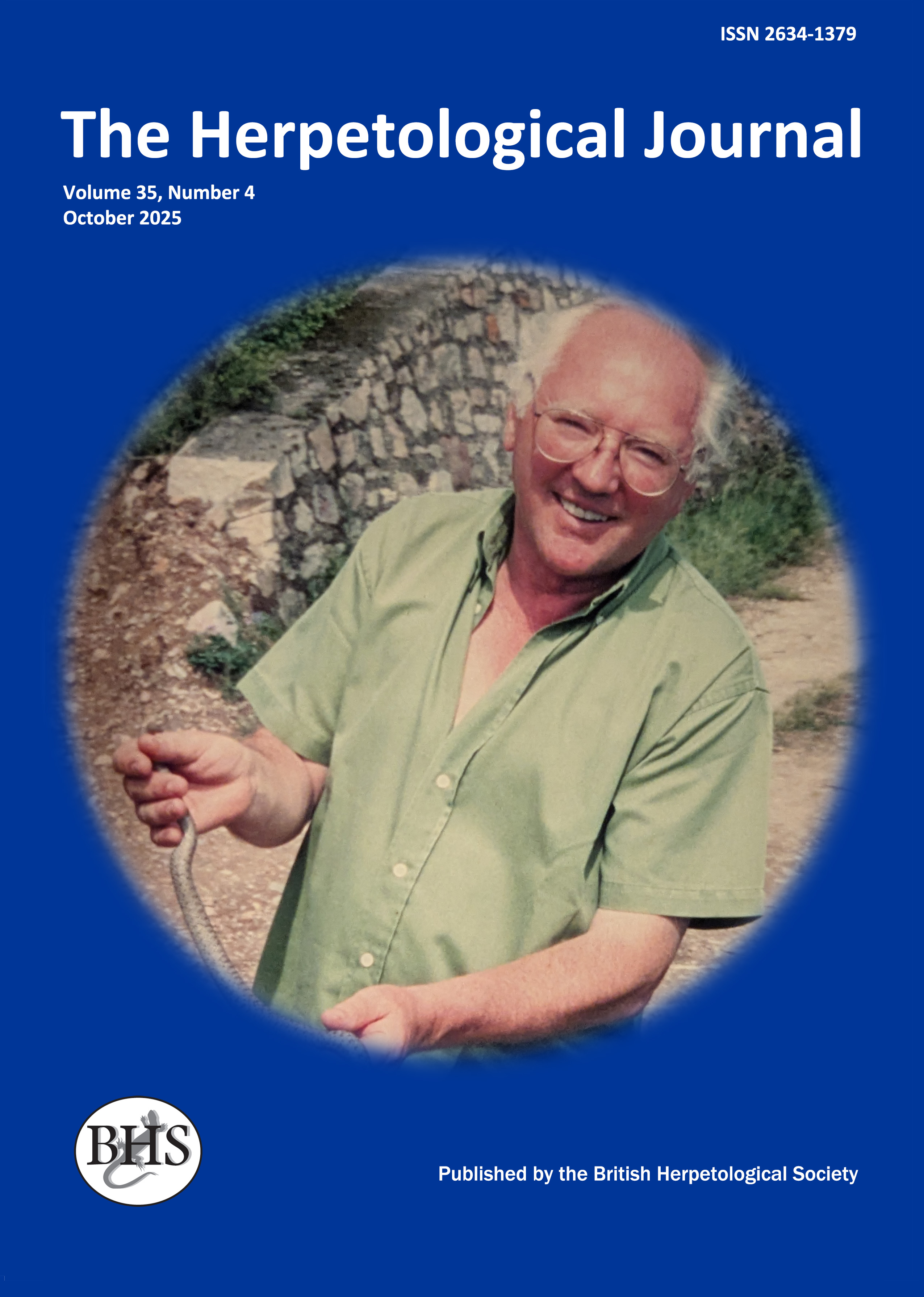
The Herpetological Journal
The Herpetological Journal is the Society's prestigious quarterly scientific journal. Articles are listed in Biological Abstracts, Current Awareness in Biological Sciences,Current Contents, Science Citation Index, and Zoological Record.
ISSN 0268-0130
2023 Impact Factor for the Herpetological Journal is 1.1, with the Journal sitting just below Quartile 2 in Zoology, at percentile 46.9
pdf 07. The trade of Kinosternon scorpioides on Marajó island, Brazilian Amazon: from hunting to consumption
1214 downloads
Open Access
pp. 361-367
Authors: Samuel Silva de Cristo, Pedro Chaves Baía Júnior, Joilson Silva da Silva, José Ribamar Felipe
Marques & Diva Anelie de Araújo Guimarães
Abstract: We studied the trade network of the Scorpion Mud Turtle, Kinosternon scorpioides, on Marajó Island, Brazil, from hunting to
the final product consumption. We conducted semi-structured interviews at the urban centers of the cities of Soure, Salvaterra
and Cachoeira do Arari, where we investigated: A) the socioeconomic profile of the merchants and their activity; B) the origin,
form and the frequency of marketing K. scorpioides; and C) the demand for the product. Scorpion Mud Turtle hunting was
carried out using the following methods: hand-collection (100%), probing (62%) and burning (54%). They were hunted for two
reasons: personal consumption and sale, which was conducted in urban centers. The hunters knew the empirical aspects of the
species biology in the wild: habitat, trophic ecology, and reproduction, among others. The trade of K. scorpioides is still a strong
activity on Marajó Island, and the legal regulations are not enough to inhibit this practice, which poses a threat to the future of
this species in this area. The establishment of educational efforts and captive breeding programs of this species will contribute
to employment, to local family income, and to the conservation of this genetic resource. These efforts also be important for
that the local population could produce and consume this species in a more sustainable way.
Keywords: biodiversity; ethnobiology; scorpion mud turtle; chelonians

